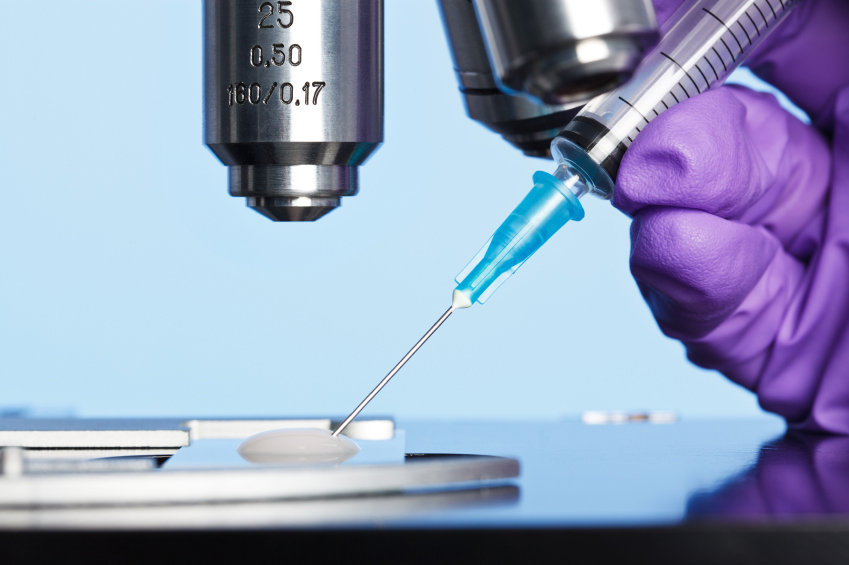British deputies adopted, in a tense atmosphere and after several hours of lively debate, at the end of May, a new law on human fertilisation and embryology.
Abortion
British legislation – the most liberal in Europe – authorises the voluntary termination of pregnancy (VTP) until the 24th week of pregnancy. Deputies rejected the amendment supported by more than 200 members of English Parliament from different political parties and health specialists, gynaecologists and obstetricians, who aims at reducing this time limit to 20 weeks and which settled a 10-day period of reflection after a woman decides to abort so that she can be advised and informed, in particular about the risks. Former nurse at the origin of this amendment, the deputy Tory Dorries, underlined the fact that a growing number of babies survive at 24 weeks at least. “Now we are in an absurd situation where physicians fight to save premature babies at a certain place of the hospital, and others terminate it in another place, at the same duration of pregnancy.” Prime Minister, Gordon Brown, was opposed to a modification of the law on this point.
Civil status: facultative father
At the same time, deputies voted, with 290 votes against 222, that the name of the father on the insemination application form and on the registry of birth is not obligatorily written. From now, another name than the father’s one can be written. Health Ministry, Dawn Primarolo, indicated that this measure “will concern all persons who search a treatment, for people of the same gender, lone women or heterosexual couple“.
Selection of embryos
Then the Parliament authorised the parents of children with serious diseases to select the embryos, according to their gender, to serve as a graft for their ill brother or sister.
Man-animal hybrids
Finally deputies approved the creation of man-animal hybrid embryos, coming from the integration of human DNA into animal oocytes. Conceived for research purposes, these hybrids must be destroyed after 14 days of development and cannot be re-implanted. We remind that this practice has already been authorised, in last September, by Human Fertilisation and Embryology Authority (HFEA) and that two laboratories have a licence to conduct these researches.
From the beginning of July, HFEA gave the green light for the creation of man-pig embryos. After the man-cow and man-rabbit embryos, it is the third kind of hybrid embryos authorised in Great Britain.
The Catholic Church, and the deputies of the opposition, denounced a “Frankenstein experience“. The bishop of Edinburg, Keith O’Brien, talks about “a monstrous attack against man’s rights and human dignity“. His Eminence Elio Sgreccia, as President of the Pontifical Academy for Life, declared that this measure was particularly serious at the ethical level as “it constitutes an offense to the man dignity“, “it is an offense to the fertilisation between species, which until now was prohibited by the laws on artificial fecundation“.
The supporters of this interspecies engineering put forward that, enabling having embryonic stem cells in the genotype at 99% human, they will facilitate the researches of treatments for some affections like mucoviscidosis or Alzheimer’s disease. H.E Sgreccia was against this “media lie” which does not rely on “any scientific foundation“, calling “not to create, in the name of human compassion, illusions, on ways which yet did not lead to any result”.
Thus, in the name of a theoretical therapeutic advance, the barrier which separates the human species from the others has just collapsed: Today, there is no positive clinical trial on man using human embryonic stem cells compared to cord blood and adult stem cells. There are various scientific obstacles before human embryonic stem cells are authorised for a possible clinical use. How to make believe that man-animal hybrid embryonic cells would be more compatible with man?
If today such researches are prohibited in France, Ministry for Research, Valérie Pécresse, declared, in last September, following the authorisation granted by the HFEA, that she wished “that the Agency of Biomedicine treats right now the ethical issues that the British decisions creates, particularly as they “could emerge within the framework of the revision of the law of bioethics foreseen in 2009“. On the eve of the Convention of bioethics which will prepare, from the beginning of 2009, the revision of the law of 2004, it is necessary to stay vigilant…
1. Né de spermatozoïde inconnu, Arthur Kermalvezen – Presse de la Renaissance – Février 2008

